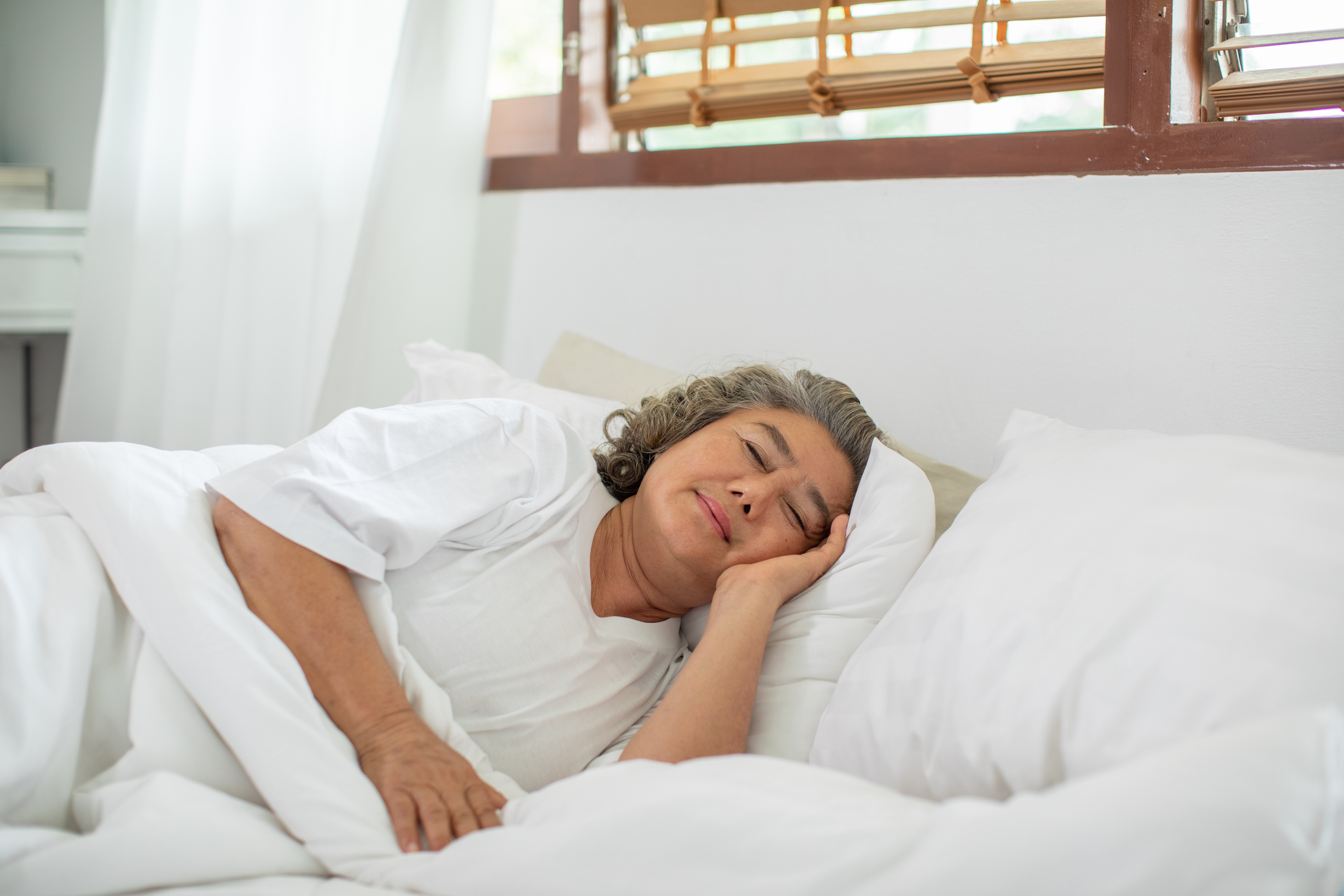Haga clic aquí para leer este boletín en español.
Smartphones, anxiety, caffeine — these are just a few of the factors that prevent many of us from getting our full eight hours of sleep each night.
People with Alzheimer’s disease and other types of dementia can experience poorer sleep, with sleepless nights and daytime drowsiness. It’s uncertain whether lack of sleep increases dementia risk, or whether dementia causes sleep disruptions, but researchers are looking for answers.
What the science says
The relationship between sleep and dementia is complex and not fully understood. Some research has tied impaired sleep to the buildup of beta-amyloid protein in the brain. This protein is a hallmark of Alzheimer’s disease and disrupts communication between brain cells. Beta-amyloid accumulation may be associated with poorer sleep quality and shorter sleep duration.
Furthermore, studies have suggested that prolonged periods of poor sleep during middle age can have consequences for brain health further down the line.
A decades-long study of 8,000 participants in the UK found that individuals in their 50s and 60s who got six hours or less sleep per night were 30% more likely to be diagnosed with dementia later in life than their counterparts who slept seven hours per night.

In contrast, other brain diseases like progressive supranuclear palsy may involve damage to brain cells that make us feel drowsy, which causes people with these conditions to experience insomnia and sleep deprivation.
Understanding how different brain diseases impact sleep could help researchers develop more tailored and effective treatments.
Managing sleep issues
Severe sleep disruptions are often more common during later-stage Alzheimer’s disease, when changes in memory and thinking are more pronounced.
People living with Alzheimer’s can experience a phenomenon called “sundowning,” which includes restlessness, disorientation, anxiety, and agitation beginning in the evening and continuing throughout the night. Scheduling appointments and activities earlier in the day can help those with Alzheimer’s better manage sleep issues and sundowning.
If you are a caregiver for someone living with dementia, it can be helpful to maintain a consistent daily routine and bedtime, help the person minimize or avoid caffeine, nicotine, and alcohol, and pay attention to “triggers” in the environment that may cause the person to become anxious or agitated. If the person is restless, a brief walk can be calming.
 Medications like benzodiazepines can be prescribed for sleep, but these may not be right for everyone. There’s mixed evidence regarding whether these are effective in the long run, and these drugs can have significant side effects. It’s important to consult with your doctor before beginning any medications for sleep.
Medications like benzodiazepines can be prescribed for sleep, but these may not be right for everyone. There’s mixed evidence regarding whether these are effective in the long run, and these drugs can have significant side effects. It’s important to consult with your doctor before beginning any medications for sleep.
Tips for getting a better night’s rest
Cultivating good sleep habits can be helpful for getting quality sleep. Here are some suggestions:
- Consistency is key: make it a habit to wake up at the same time each morning and go to bed at the same time each night to help your body adjust to a regular sleep schedule.
- Set the tone: turn off the lights, set the room to a comfortable temperature, and minimize background noise to set up a restful sleep environment. Reduce exposure to bright lights and electronics at least 30 minutes before going to bed so that your body can start winding down.
- Avoid eating large meals, consuming caffeine, or drinking lots of fluids right before going to bed.
- If you cannot fall asleep after 20 minutes in bed, get out of bed and perform a relaxing activity with low light, like stretching or reading.
 —
—
If you or your loved one is concerned about sleep disruptions, we recommend consulting with your physician.
Thank you to our participants for your ongoing support of our research. Your valuable contribution allows us to explore important questions about brain health and speed the search for treatments for Alzheimer’s disease!




